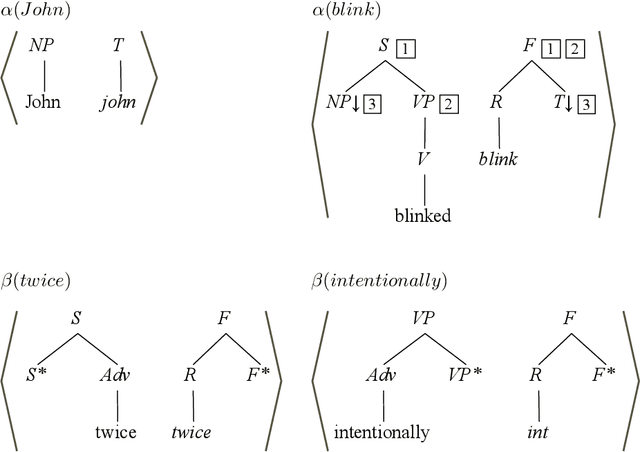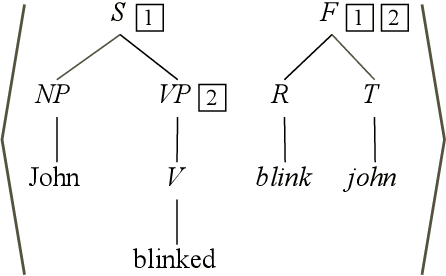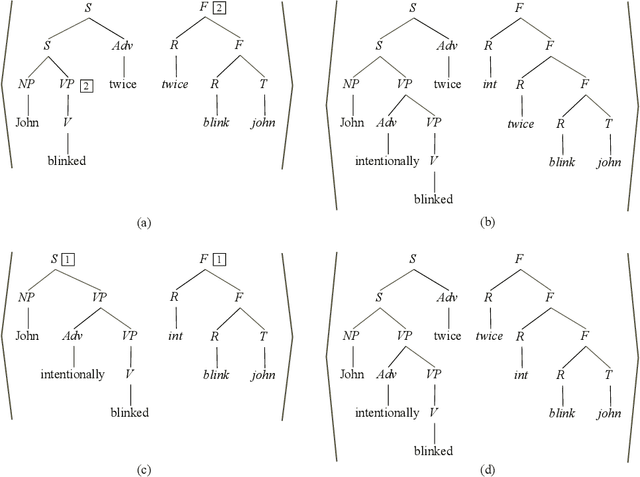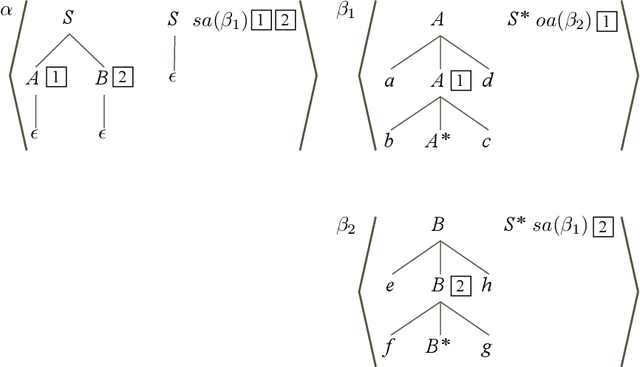Restricting the Weak-Generative Capacity of Synchronous Tree-Adjoining Grammars
Paper and Code
Aug 30, 1994



The formalism of synchronous tree-adjoining grammars, a variant of standard tree-adjoining grammars (TAG), was intended to allow the use of TAGs for language transduction in addition to language specification. In previous work, the definition of the transduction relation defined by a synchronous TAG was given by appeal to an iterative rewriting process. The rewriting definition of derivation is problematic in that it greatly extends the expressivity of the formalism and makes the design of parsing algorithms difficult if not impossible. We introduce a simple, natural definition of synchronous tree-adjoining derivation, based on isomorphisms between standard tree-adjoining derivations, that avoids the expressivity and implementability problems of the original rewriting definition. The decrease in expressivity, which would otherwise make the method unusable, is offset by the incorporation of an alternative definition of standard tree-adjoining derivation, previously proposed for completely separate reasons, thereby making it practical to entertain using the natural definition of synchronous derivation. Nonetheless, some remaining problematic cases call for yet more flexibility in the definition; the isomorphism requirement may have to be relaxed. It remains for future research to tune the exact requirements on the allowable mappings.
 Add to Chrome
Add to Chrome Add to Firefox
Add to Firefox Add to Edge
Add to Edge